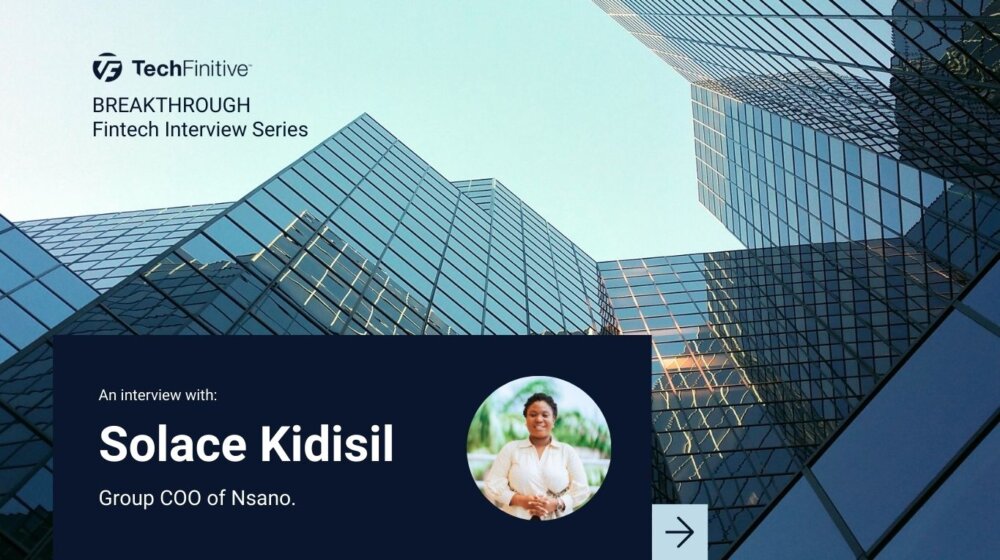
Stephen Lester, CTO at Paragon: “Though the spotlight has remained on AI it will be some time before we see genuinely groundbreaking use cases”
One of the reasons we love to talk to so many experts from differing fields is that they see things through such different eyes. As CTO at Paragon, a provider of transformational business services, Stephen Lester naturally has a more technological bent than others in our CX Today series, and only he has made the point that “data and AI are two sides of the same coin”. Particularly in relation to customer experience.
And while data lacks the shiny-and-new excitement of AI, we take his point. If you don’t have the right data about your customers, what use is AI? How can you personalise their experience, give them what they need, if you don’t know enough about them? To put it bluntly, and in Stephen’s own words, data is “the lifeline of any business”.
It’s apt that all the advice Stephen offers in this interview is down to earth, starting his career as an apprentice in the world of horticulture and agriculture. Since then, he has spent two decades helping companies seize their business opportunities, and it should be no shock by now that he now uses “data-driven strategies to deliver better customer experience”.
While we can only offer words rather than hard data for the rest of this article, we recommend you take note. It might just change the way you do business.
Recommended reading: Ryan Austin, Cognota: “Rapid advancements in technology are reshaping industries, job roles, and the skills required for the workforce”
Could you please introduce yourself to our audience? What motivated you to pursue a career in customer experience, and how did you embark on your journey in this field?
After completing my apprenticeship in Horticultural and Agricultural Engineering, I decided that mechanics and engineering weren’t really for me – I enjoyed the theory of it, but not the practical elements.
After that, I found myself working in advertising and media for several years, alongside people who composed music for TV adverts and licensed it around the world. It was never the plan, but I saw the job advertised and quickly swapped the Essex countryside for an amazing office on Carnaby Street in central London.
Then, as is so common when we talk about career paths, I fell randomly into digital print when it first picked up, joining a small software company in Billericay. I was part of a team of just four people who wrote a piece of software that supported the composition of digital presses. This is where it all started, and how I eventually ended up at Paragon.
What are your thoughts on the escalating integration of AI in customer experience and its potential influence on the future of customer service at large?
The advancements we’ve seen in AI have been phenomenal and I’m excited to see AI being used in code-writing to speed up product developments and other advancements. I’m currently looking into how Paragon might benefit from AI in the future, evaluating whether it will fit into our product portfolio or be an enabling technology.
The use of data is always high on my agenda as it’s the lifeline of any business. How they use, consolidate and visualise their data determines factors like cost and the financial impact of their decisions, so it can’t be overlooked as new technologies emerge. Luckily, data and AI are two sides of the same coin, especially in the world of customer experience. We’re already seeing an increase in customer demand for a highly personalised experience, and AI and machine learning are hugely valuable tools in delivering this.
Recommended reading: Wade Younger, author: “Training the young and retooling the ageing is the answer and key to the new workplace tomorrow”
How do you ensure you’re up to date with the latest customer experience trends and technologies, and how do you integrate them into your strategies?
While staying on top of the news is always important, the most valuable way of staying informed on – and even predicting – trends and customer needs is through the conversations we have. For example, time and time again customers come to us needing to consolidate their digital estate. So many businesses have ended up with a patchwork of technologies as they’ve leapt forward, which is becoming a barrier to their digital transformation journeys, and making it harder to achieve new goals around ESG and carbon footprint reduction.
What core values have played a pivotal role in shaping your approach to customer experience?
My work has always been driven by three pillars: product, finance and innovation. I pride myself on being a very client-facing CTO but I’ve never let my focus on product development and financial management go, as the combination of these functions leads to the innovation and progress that we bring to our clients.
Recommended reading: Liam Bacon, CEO of Aradena: “We are on a mission to revolutionise the way we play and interact online”
Do you anticipate any significant disruptions in customer experience technology for 2024?
This is a hard question to answer as there’s always something new and shiny in the world of tech, which right now is still AI. However, until a technology reaches a certain level of maturity in the marketplace, it’s impossible to determine its longevity and make a call on whether it has met expectations. Though the spotlight has remained on AI (and this doesn’t look likely to change for a while), it will be some time before we see genuinely groundbreaking use cases. With all eyes still firmly fixed on AI, however, I think we’ll see the next big thing emerge from left field.
Could you share some of your most noteworthy accomplishments that you take particular pride in?
My greatest achievements have always come from the people I work with. Over the years I’ve worked with some amazing people and seen them go on to have great careers and deliver astonishing advancements in their chosen fields. It gives me a huge sense of achievement that I have the opportunity to work with them and, in some small way, help them develop over the years.
NEXT UP

Slow buyers cause tech firms to rethink sales approaches as tough Q1 hits home
New research suggests tech sales were slow in Q1, with buyers of technology and professional services taking their time before committing to any solutions.

ByteDance says it has no plans to sell TikTok and refuses to bow to US pressure
ByteDance, the Chinese company that owns TikTok, stated that it “doesn’t have any plans to sell TikTok” on Toutiao, a social media platform that it also happens to own.

Solace Kidisil, Group COO of Nsano: “The difference between traditional finance and fintech is the questions we ask”
We interview Solace Kidisil, Group COO of Nsano, a fintech company from Ghana, offering digital payment solutions across Africa